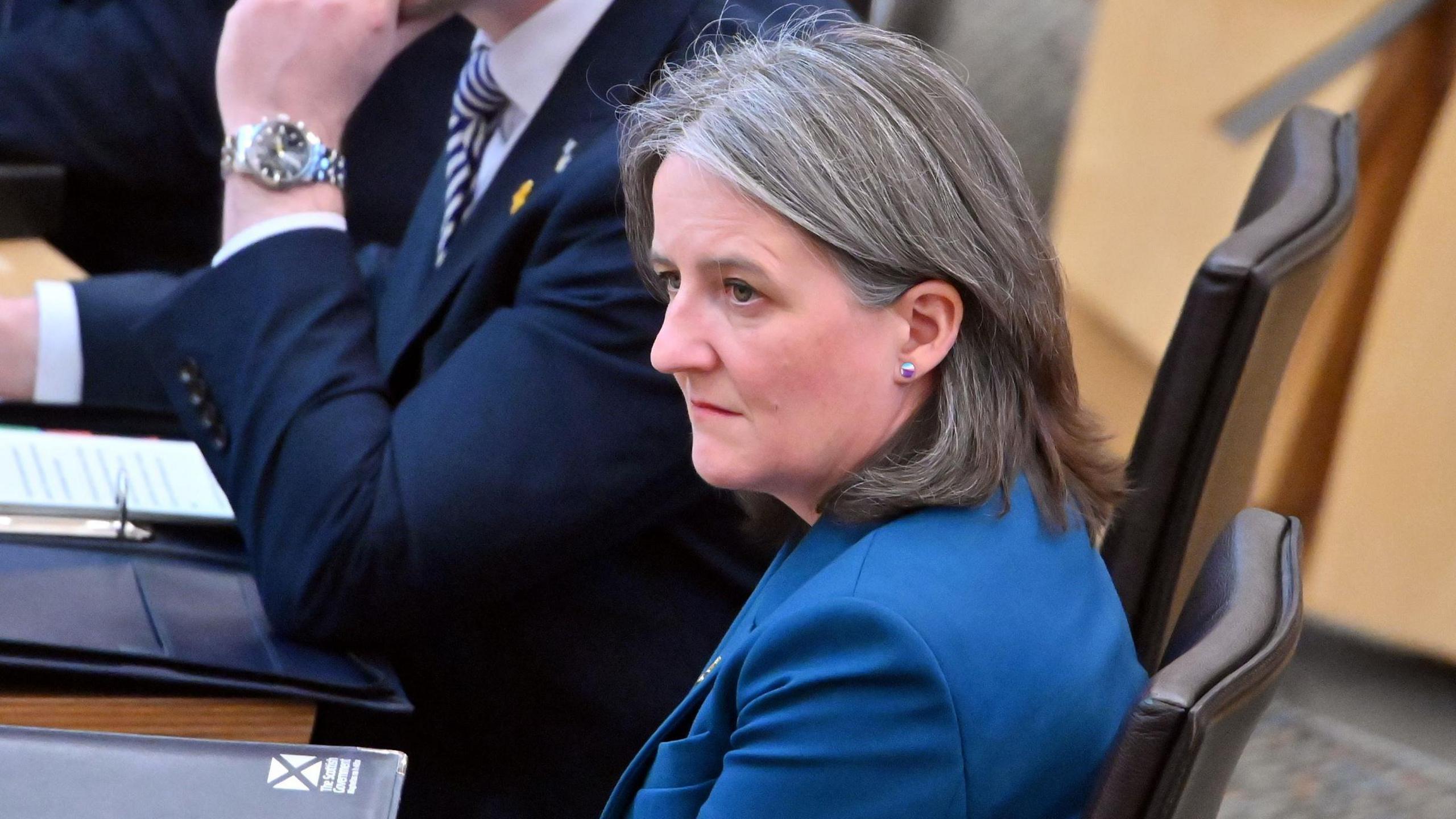Mental health unit 'missed opportunities' to help woman

- Published
A Scottish mental health assessment unit "missed opportunities" to help a school dinner lady who killed herself two days after being discharged, an investigation has found.
The Mental Welfare Commission report into the death of a woman, identified only as Mrs F, found the unit did not speak to her husband, who had "highly relevant information" about her mental state.
The report also stated information was not shared between the unit and the emergency department, and that no "safety plan" had been created for her after she was discharged.
The Scottish government said the commission's recommendations would be "fully implemented" at the unit, which was anonymised in the report.
Dr Arun Chopra, the executive director of the Mental Welfare Commission, called the case a "tragic situation" and said it showed family members should be heavily involved in mental health cases.
He told BBC Radio's Good Morning Scotland programme: "One of our key messages is that families and carers must always be involved in assessments around mental health.
"In the A&E department the family were fully involved. What happened [later] at the mental health unit is that the family did not get the chance to speak to staff - the staff felt their duties about patient confidentiality prevented them from speaking to the family."
Dr Chopra said a "key lesson" to be learned was that confidentiality could be respected while still listening to family members.
'Rushed out'
Mrs F experienced mental health problems after believing she had harmed a child by serving food they were allergic to while working as a school dinner lady.
The woman, who was in her 50s, thought she had mixed up food bags given to pupils, and told her husband that she feared "hit men" would be coming for her.
She unsuccessfully attempted suicide twice because of this belief, but concealed the attempts from her husband.
Her concerned husband, referred to as Mr F in the report, took her to the nearest emergency department, where she was considered at risk and referred to the mental health assessment unit for a more detailed evaluation.
However, the unit did not speak to Mr F, as staff said his wife had not given consent to sharing information with him.
The report stated this meant "highly relevant information" was missed by staff.
The emergency department's information was also either not available or not used by the assessment unit, which then discharged Mrs F to go home, with no further mental health appointments planned.
Mr F told the commission he had felt "rushed out" of the unit.
Mrs F died two days later.

Maree Todd said the commission's report would be acted upon
The report added that there were questions regarding the health board's "supervision, training and governance process."
Family members of Mrs F told the report there had been "inadequate" contact from the health board following her death, and that they had not been offered any support or counselling.
The Scottish government's Mental Wellbeing minister Maree Todd said she extended her "heartfelt sympathies" to the family of Mrs F.
She added: "The relevant health and social care services have been issued with specific recommendations and learning points and we expect these to be fully implemented."
The recommendations are expected to be acted upon within six months.